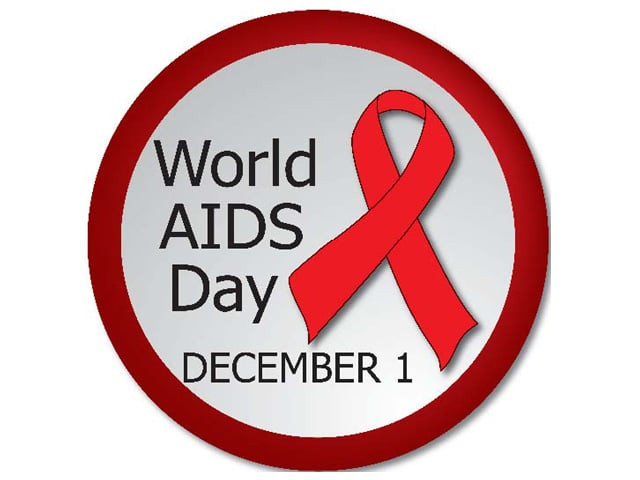HIV patients feel embarrassed, deny themselves treatment
People working abroad one of the major causes of the spread of the disease, say doctors.

Anee does not get any treatment. “I do not have the courage to go to the hospital because I am ashamed of what I did”, the 23-year-old says.
Originally from Gujjar Khan, Anee maintains that she was forced into working as a sex-worker after the man she eloped with to Lahore left her with his ‘aunty’ Shazia. “He told me that he had to go to Karachi to resolve some family issues,” she says.
Anee had met the man at a shop and fallen in love. She says that she found out later that the man had come from Saudi Arabia and was a partner of Shazia, a sex work organiser. “Soon afterwards I found out that I was pregnant. During the pre-natal check up, the doctor told me I was HIV positive,” she says bursting into tears. Her baby boy is also HIV positive. Anee was kicked out by Shazia after she learnt about Anee’s disease.
Dr Rizwan Qazi, general physician and directorate of HIV/AIDS centre at the Pakistan Institute of Medical Sciences (Pims), says, “Patients who are HIV positive or have AIDS are known to be embarrassed and therefore are hesitant to take treatment since the virus is transmitted sexually in majority of the cases. This really discourages and embarrasses the patients who then do not take treatment.”
Dr Sajid Ahmed, the National AIDS Control Programme manager, while talking to The Express Tribune said that people who work abroad are a high-risk group in the spread of the disease.
“I have treated many women who got the virus from their husbands, who work in foreign countries”, he added.
Dr Qazi, said that he had once treated a man who used to work in South Africa and was HIV positive.
“We treated him and he recovered a bit. I was shocked when one day he gave me his wedding invitation’”, said Dr Qazi.
The doctor said that he had tried to stop the man from getting married “but he changed his house and mobile number and became inaccessible”.
Dr Sajid Ahmed of the NACP told the Tribune that a draft of the first-ever HIV/AIDS policy formulated by the NACP has been forwarded to the Ministry of Health for approval. He says that the policy contains measures that will help check the spread of the disease.
The stigma related to the disease, however, does not discriminate between the married and the unmarried.
Bibi Zahida, 33, and her husband Abdul Ghafar, 45, belong to Pashin. Both of them are HIV positive. They have been married for 17 years and have five children. Zahida is under treatment at Pims. Her husband says that he was infected because of her. “My wife became HIV positive when she got blood transfusion during an abortion,” claims Ghafar.
According to Ghaffar, they live in a joint family but none of their relatives knows about their disease. “If they find out, we will be kicked out,” Ghaffar.
Published in The Express Tribune, December 1st, 2010.




1724319076-0/Untitled-design-(5)1724319076-0-208x130.webp)














COMMENTS
Comments are moderated and generally will be posted if they are on-topic and not abusive.
For more information, please see our Comments FAQ